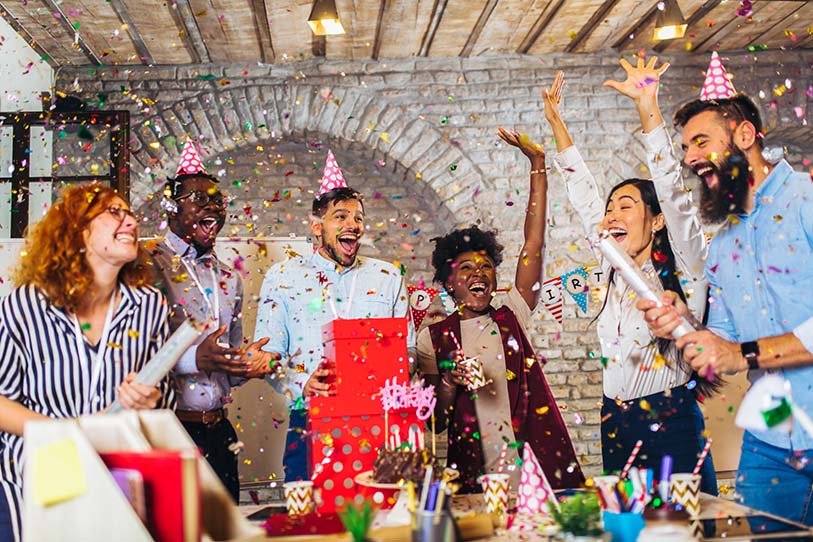When my patients ask me this question, they are often considering, or already involved with, a relationship outside of the one they are committed to.
The outside involvement may or may not include physical intimacy, but definitely requires re-distributing their overall resources to accommodate both relationships.
As they struggle to partition time, energy, availability, finances, emotional attachment, and the risks of hurting others, they realize that the situation is untenable for a long period of time. Yet, they cannot let go of either relationship. They ask me, “Is there something wrong with me that I am in love with two people at the same time and can’t give either up?”
These situations, and the conflicts that accompany them, are not that uncommon. Yet, many people in committed relationships believe that they should be able to meet all of their needs with only that one person. They feel they are failing when they cannot.
The assumption that true love can only be between two people at one time is one of the contributing factors. Most people have loved one person at a time with all of their hearts, albeit sequentially. It is when they overlap that conflicts occur. The partner who falls in love with more than one person at a time is not generally viewed in a positive way for many reasons.
Culture, religious practice, privilege, and societal expectations with regard to having more than one relationship at a time are also in play. Going against social norms always has a cost, and though one may get away with breaking them, there is always the chance of being caught and the consequences that go along with that possibility.
Though often viewed skeptically, there are also open relationships, where both people in a partnership agree that others can be in the picture as well.
Although there are people who are able to refrain from jealousy and feelings of being dropped in priority at some time, many who have been part of these transparent multi-relationship experiences risk distress when they find themselves wanting one person who wants others as well.
What is clear is that there are only so many resources any person has at any time in his or her life, and distributing them in such a way as to maintain the needs of their primary relationship while feeding the other is difficult.
Though that is especially true when one relationship is kept secret from the other, it can also be a problem in open relationships. There is just so much time, energy, availability, and love to go around.
Sadly, these love triangles are usually not sustainable over time, and most do not end well. It is important that if a person chooses to maintain more than one relationship, they are aware of why they chose to enter the situation and what might happen if it were discovered.
I have asked those of my patients who have lived these situations why they felt they chose to risk their primary relationship by adding another love to their lives. Here are six of the most common reasons they have shared with me.
1. I couldn’t get everything I wanted in one relationship and my needs just wouldn’t go away.
You can still become vulnerable to other opportunities even when you love your primary partner deeply. If you suffer fits of hunger and needs that increase in intensity over time, you may not be able to resist if an opportunity presents itself.
Perhaps you were not able to develop the skills and openness with your partner that would have allowed you to share your growing frustrations before you needed to act on them.
2. I thought each relationship would enhance the other.
You truly believed, or perhaps rationalized, that fulfilling your desires and enhancing your life with a second relationship would make you more able to love your primary partner more. That may have actually happened at the beginning because you felt renewed and more alive, but, over time, it is more likely to make you more unsatisfied in the relationship you are sacrificing.
3. I never meant to betray my partner and was just innocently flirting. But it got out of hand and then I couldn’t give it up.
You were desperately trying to find fulfillment by just encouraging warmer friendships. Then, sometimes in one moment, you stepped over the line and experienced feelings you have not before. Now, you’re involved in infidelity and have to make a choice, but everything in you doesn’t want to.
You know what you are doing is going to backfire but you don’t have the strength to disconnect. You know you are heading for trouble, but just can’t stop.
4. It makes me feel more secure to know that I have a backup if my primary relationship ends.
That may have been your unconscious intent all along, without your realizing it. You may have been worried that your primary relationship was wavering and not fulfilling for either of you. Feeling anxiety about an uncertain future, you are setting up a backup relationship that will welcome you if your current relationship falls apart.
5. I have to admit that I got a thrill out of going against the norms and breaking my usual pattern of always doing what is right.
Perhaps engaging in a second relationship, whether fantasy or real, was liberating for you because you have limited your options all of your life by choosing security over adventure. You now don’t want to do what you’re supposed to do anymore and the situation is helping you break free.
6. I’ve been hurt so many times in the past when my partners have ended the relationship. Now, I’m making sure I’m in control by not being dependent on only one relationship.
If you have a history of relationship sorrow, you may be unable to ever be comfortable in only one relationship. Learning to accept that in yourself and being honest about it to potential partners can create a freedom you may never have been able to experience. Being open will save you the conflicts of needing to betray another to get what you need.
















